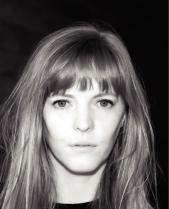BKMT READING GUIDES
Elizabeth Is Missing: A Novel
by Emma Healey
Hardcover : 320 pages
19 clubs reading this now
6 members have read this book
In this darkly riveting debut novel—a sophisticated psychological mystery that is also an heartbreakingly honest meditation on memory, identity, and aging—an elderly woman descending into dementia embarks on a desperate quest to find the best friend she believes has disappeared, and ...
Introduction
In this darkly riveting debut novel—a sophisticated psychological mystery that is also an heartbreakingly honest meditation on memory, identity, and aging—an elderly woman descending into dementia embarks on a desperate quest to find the best friend she believes has disappeared, and her search for the truth will go back decades and have shattering consequences.
Maud, an aging grandmother, is slowly losing her memory—and her grip on everyday life. Yet she refuses to forget her best friend Elizabeth, whom she is convinced is missing and in terrible danger.
But no one will listen to Maud—not her frustrated daughter, Helen, not her caretakers, not the police, and especially not Elizabeth’s mercurial son, Peter. Armed with handwritten notes she leaves for herself and an overwhelming feeling that Elizabeth needs her help, Maud resolves to discover the truth and save her beloved friend.
This singular obsession forms a cornerstone of Maud’s rapidly dissolving present. But the clues she discovers seem only to lead her deeper into her past, to another unsolved disappearance: her sister, Sukey, who vanished shortly after World War II.
As vivid memories of a tragedy that occurred more fifty years ago come flooding back, Maud discovers new momentum in her search for her friend. Could the mystery of Sukey’s disappearance hold the key to finding Elizabeth?
Editorial Review


Kimberly McCreight, author of the New York Times bestselling Reconstructing Amelia, interviews Emma Healey
Kimberly McCreight (KM): One of the things I most admire about Elizabeth is Missingâ??and there is so much to admireâ??is the utterly convincing voice of Maud, both in her advanced years and when she is much younger. How did you tackle the challenge of presenting a single character at such disparate times within a single narrative?
Emma Healey (EH): Iâ??m so glad itâ??s convincing, thank you. I started with Maudâ??s voice as an eighty-year-old and found that only needed a little adjusting to take her back into childhood. The voice overall is very much based on my motherâ??s mother, Vera. I was very close to her and she had (ironically) a brilliant memory and had lots of stories to tell about her early life. I spent most of my school holidays with her, so remembering and sticking to the kind of words she would have used gave me a guide for Maudâ??s lexicon. Voice is so much about vocabulary. I do have to say though, I think writing from the point-of-view of a single character, even in two time frames, is much easier than swapping between characters. Reading Reconstructing Amelia, I am amazed at how well you alternate a first-person and third-person narrative, from the point-of-view of a teenager and a mother, as well as using Facebook statuses and text messages, all in one novel. I should be asking you how you made that work so well!
KM: Was there something that drew you to writing about a character losing her grip on reality, particularly one struggling with dementia?
EH: The initial inspiration for the book came from my father's mother, Nancy, who has multi-infarct dementia, but my auntâ??s mother-in-law had suffered from Alzheimerâ??s for several years before that and other members of my family had had various forms of dementia. At the time, dementia wasnâ??t something that was being talked about so much and I was fascinated (as well as terrified and upset) by the way a person could come and goâ??one minute their old selves, the next in a world of their own. Their patterns of behavior could be anything from perfectly reasonable to completely bizarre and it seemed like there was a lot more going on under the surface, which was difficult to discover or explain, and this seemed ripe for fictional exploration.
KM: Elizabeth is Missing has such a smooth, flawless structure. You move so nimbly through time, without relying on chapter breaks or some such device to delineate different sections. It works so well that I think any demarcations would have interfered with the story. Can you talk a bit about the decision to include chapters that switch back and forth through time?
EH: Thank you. Again, Iâ??m really glad you think so. The structure happened fairly organically. I felt that a dialogue between current and past events was truer to the way memories work â?? they break into your immediate thoughts, rather than wait for you to decide to have them â?? and I wanted the sections to be relatively short in order to mirror the fragmentary experience of dementia. Not dividing the past and present into separate chapters made it easier too to increase the length of the past story as Maudâ??s preoccupation with it intensified (and as her awareness of the world around her faded), without signaling too heavily to the reader and without losing the thread or balance of either narrative.
KM: Your book is both a compelling emotional story as well as a mystery. Which comes first for you?
EH: I find plotting a book very exciting, and really enjoy trying to weave in narrative strands and tie up all the ends, but I have to feel there is some real experience behind the story, some â??truthâ?? that Iâ??m attempting to represent, too. And these two things seem to me to be inextricably linked. Itâ??s much easier to engage emotionally when there is an intriguing story unfolding â?? a dull character or a character in a dull situation is difficult to take an interest in, even if they are sympathetic. Similarly, for a mystery to work and for the reader to care whether, and how, it is solved, there needs to be a certain amount of emotional investment in the characters and themes.
KM: I couldnâ??t agree more. There needs to be a constant dialogue between character and story. Trying to achieve that balance is, for me, one of the greatest joys and the greatest challenges of being a novelist. What's your biggest challenge as a writer?
EH: Being a writer means being constantly mentally engaged. This is great in some ways as itâ??s exciting and gives a context and significance to every aspect of life, but it also means there are no off-duty hours. So anytime Iâ??m not writing (or not observing, listening, note-taking), Iâ??m feeling guilty about it. Justifying writing is sometimes difficult, too: Why this subject? Why this character? But most of all, why me? What can I offer that another writer couldnâ??t? A terrible question because the answer is invariably nothing.
KM: Youâ??re right, that â??whyâ?? is very important. It inevitably pushes your story to a much stronger place. What's your background? Elizabeth is Missing is such an accomplished debut, I'm assumingâ??okay, maybe hopingâ??there was some writing that came before it. Otherwise, I might be far too jealous.
EH: Ha ha! Well, I wrote lots of bits of things, of course, but I hadnâ??t really finished anything before Elizabeth is Missing. My first degree was in Book Arts, and the course did offer a Creative Writing module, but I was too shy to take it. Instead, I learned how to sew pages together and foil block and print. I was always an avid reader though, and I began to take short courses in writing and editing after I graduated and started the novel while I was working in an art gallery in London. I also found a workshop group, which was brilliant and gave me the confidence to experiment and find Maudâ??s voice. Eventually, I went back to university to get my MA in Creative Writing at UEA.
KM: Well, I certainly canâ??t wait to see what you do next. Best wishes with Elizabeth is Missing. Itâ??s such a wonderful book.
Discussion Questions
1. What interesting and complex narrative effects result from the narrator having such difficulty with her memory?2. Consider the prominent image of summer squash in the novel. What connotations does it add to the story? What are the various effects of the repeated references?
3. What key details are introduced in the Prologue?
4. How does the consistent shift from present to past affect the telling of the story? How does the author transition between them?
5. In Chapter 1 there are several allusions to Little Red Riding Hood. In what ways might this fairy tale be relevant to the story?
6. Carla, one of Maud's caregivers, often tells of horrible crimes she's read about in the news. What does this add to the novel? How does it affect Maud?
7. What is the difference between something or someone being missing, lost, or gone? Consider various points of view.
8. In what relevant ways does the war--and all the lengthy separations it causes--affect the people and relationships in the novel?
9. What is the importance and effect of "the mad woman" throughout the novel?
10. Consider Douglas and Frank. Both seemingly have moments of menace and kindness. In what ways are they similar or different?
11. In Chapter 10, Maud, having forgotten what room she was headed to, says, "I must be going mad." In what ways is she similar to or different from the mad woman?
12. What does the subject of Maud's childhood illness add to the story?
13. Throughout her life, but especially once her sister Sukey goes missing, Maud collects random, found objects. In what various ways do physical objects come to possess meaning or value?
14. Of what particular significance to the novel is the detail of Maud collecting "boxes full of disintegrating bees and wasps and beetles"?
15. At one point, speaking to Frank, Maud denies that she has secrets, but then admits to liking the idea. In what ways might secrets be important? How can they be unhealthy?
16. Late in the novel, Maud touches something of her sister's and says, "The contact makes it possible to breathe again." What is she experiencing?
17. What does Maud's granddaughter Katy bring to the novel?
18. Consider the Epilogue. What is the effect of ending the novel with the lyric swirl of Maud's receding memories?
Book Club Recommendations
Recommended to book clubs by 0 of 0 members.
Book Club HQ to over 90,000+ book clubs and ready to welcome yours.
Get free weekly updates on top club picks, book giveaways, author events and more








